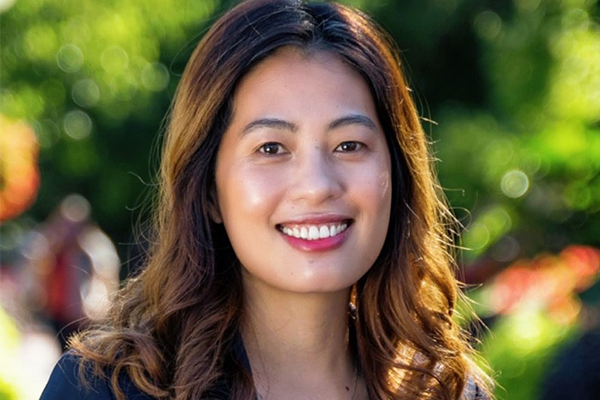Kean Professor’s Impactful Research on Retirement Security

A Kean University professor who studies how public policies influence retirement behaviors says state-mandated programs can help workers save more for their retirement.
Assistant Professor Ngoc Dao, Ph.D., studied OregonSaves, the first program in the country to enroll private-sector employees who don’t have an employer-sponsored retirement plan in a plan mandated by the state.
Her findings reveal a 12% increase in the number of Oregon private-sector workers with an IRA account, compared to their counterparts in other states. That amounts to an approximately $1,900 boost in retirement savings per worker each year.
Dao believes the programs are a public policy win.
“Roughly half of the private workers in the country are not offered any retirement savings plans at work, which can lead to retirement insecurity,” said Dao, a faculty member in Kean’s College of Business and Public Management. “If they do not save enough, it is more likely that seniors live in poverty in retirement, unable to maintain their pre-retirement standard of living. They become more likely to rely on social welfare benefits.”
Using U.S. Census data, Dao compared the participation rate in Individual Retirement Accounts (IRAs) of private-sector workers in Oregon to private-sector employees in states without a mandated program during the first two years of OregonSaves, 2017-2019.
The Social Security Administration funded Dao’s research when she was a postdoctoral fellow at the University of Wisconsin-Madison in 2021. She conducted the research at Kean after joining the faculty in October 2021.
Dao said Kean’s diverse academic environment has given her deeper insight into her research.
“At Kean, I have opportunities to meet with a lot of students from different backgrounds and perspectives,” she said. “Working in a minority-serving institution provides me a lot of chances to better understand the context of the research I do.”
Susannah Porterfield, Ed.D., vice president for research at Kean, said Dao’s work supports Kean’s mission as the state’s urban research university.
“Saving for retirement is a critical issue for workers as individuals as well as for society as a whole,” Porterfield said. “This kind of practical analysis helps inform public policy for the betterment of all.”
Nineteen states have either implemented state-mandated retirement saving programs or are planning them. Under most plans, employers automatically enroll their employees in the program and up to 5% of a worker’s salary each month is invested. Employers do not match the contribution, and employees can opt out and pause their investments.
New Jersey is rolling out its plan, Secure Choice Savings Program, this year, and Dao sees further research opportunities as the program takes root.
“I would like to further explore how the mandatory retirement saving plans impact the labor supply, employment rates in the private sector, and the well-being of the workers enrolled in the programs,” she said.
Dao, a public policy economist, has also conducted research reviewing public policy to support caregivers, including the potential impact of paid federal family leave for people providing care for family members and older adults.
She and a collaborator at Duke University will release their findings in the coming months.